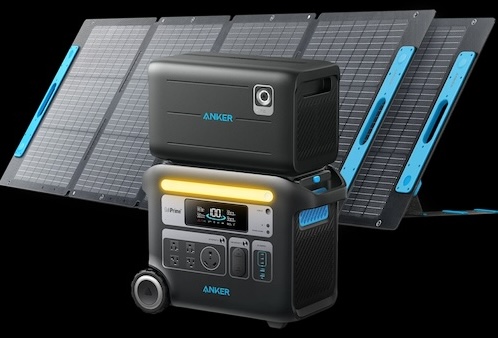In an era increasingly focused on renewable energy and sustainability, portable solar generators have emerged as a versatile and eco-friendly solution to our growing energy needs. These compact and mobile units are redefining how we use solar power, providing a convenient source of energy for a wide range of applications.
What are Solar Generators?
Solar generators are self-contained power systems that harness solar energy to provide electricity. They typically consist of a small solar panel, a rechargeable battery, a charge controller, and an inverter. Unlike traditional, stationary solar installations, these generators are designed for mobility and flexibility. An easy, all in one solution for off grid power.
Key Components of a Portable Solar Generator
- Solar Panels: The primary energy source, capturing sunlight and converting it into electrical power.
- Battery Storage: Stores the electrical energy, commonly using lithium-ion or lead-acid batteries.
- Charge Controller: Regulates the flow of electricity into and out of the battery, protecting it from overcharging and deep discharging.
- Inverter: Converts DC electricity from the solar panels and battery into AC electricity, usable for most consumer devices.
Benefits of Solar Generators
Eco-Friendly and Sustainable
- They produce clean, renewable energy, significantly reducing carbon footprint and dependence on fossil fuels.
- No emissions or noise pollution, making them environmentally friendly and suitable for use in diverse settings.
Convenience and Portability
- Compact and lightweight, these generators are ideal for outdoor activities like camping, RV trips, and picnics. Or even to power your off grid property or homestead.
- Essential for emergency preparedness, providing a reliable power source during outages or natural disasters.
Low Maintenance and Cost-Effective
- Require minimal maintenance compared to traditional generators.
- Solar energy is free, reducing ongoing energy costs.

Applications of Portable Solar Generators
- Outdoor Recreation: Powering camping equipment, outdoor lighting, and cooking appliances.
- Home Backup: Providing electricity during power outages or for off-grid living.
- Events: Ideal for powering equipment at outdoor events or festivals where traditional power sources are unavailable.
- Remote Work: Enabling the use of laptops, phones, and other devices in remote locations.
- Off grid property / homestead: When considering the use of a portable solar generator for an off-grid property or homestead, there are several key factors to keep in mind to ensure you select a system that meets your energy needs efficiently and reliably.
1. Assessing Energy Needs:
- Before choosing a solar generator, calculate your daily energy usage. This includes the energy required by all appliances and tools you plan to use. Remember to account for peak usage and any future expansions in energy needs.
2. Capacity and Power Output:
- Solar generators come in various sizes and capacities. For an off-grid property or homestead, you likely need a larger system. Look for one with a high kWh (kilowatt-hour) capacity and a robust inverter that can handle high power loads.
- Consider generators that offer scalability, such as the ability to link multiple battery packs, to increase storage capacity as needed.
More information about calculate energy use and solar / battery size: Solar Power. The Comprehensive Guide to Solar Power for Offgrid Living Solar Power.
Choosing the Right Portable Solar Generator
When selecting a portable solar generator, consider:
- Power Requirements: Calculate the total wattage of the devices you need to power.
- Battery Capacity: Ensure the battery storage meets your energy needs.
- Portability: Consider the weight and size, especially if you plan to move it frequently.
- Additional Features: Look for additional functionalities like multiple charging ports, integrated lighting, or expandable solar panels.
Challenges and Considerations
- Weather Dependence: Solar generators rely on sunlight, making them less effective on cloudy or rainy days.
- Initial Cost: The upfront cost can be higher than traditional generators, though this is often offset by long-term savings and environmental benefits.
Conclusion
Portable solar generators represent a significant leap forward in renewable energy technology. Their combination of eco-friendliness, convenience, and versatility makes them an increasingly popular choice for a variety of power needs. As technology advances, we can expect these generators to become even more efficient and integral in our shift towards sustainable energy solutions.

